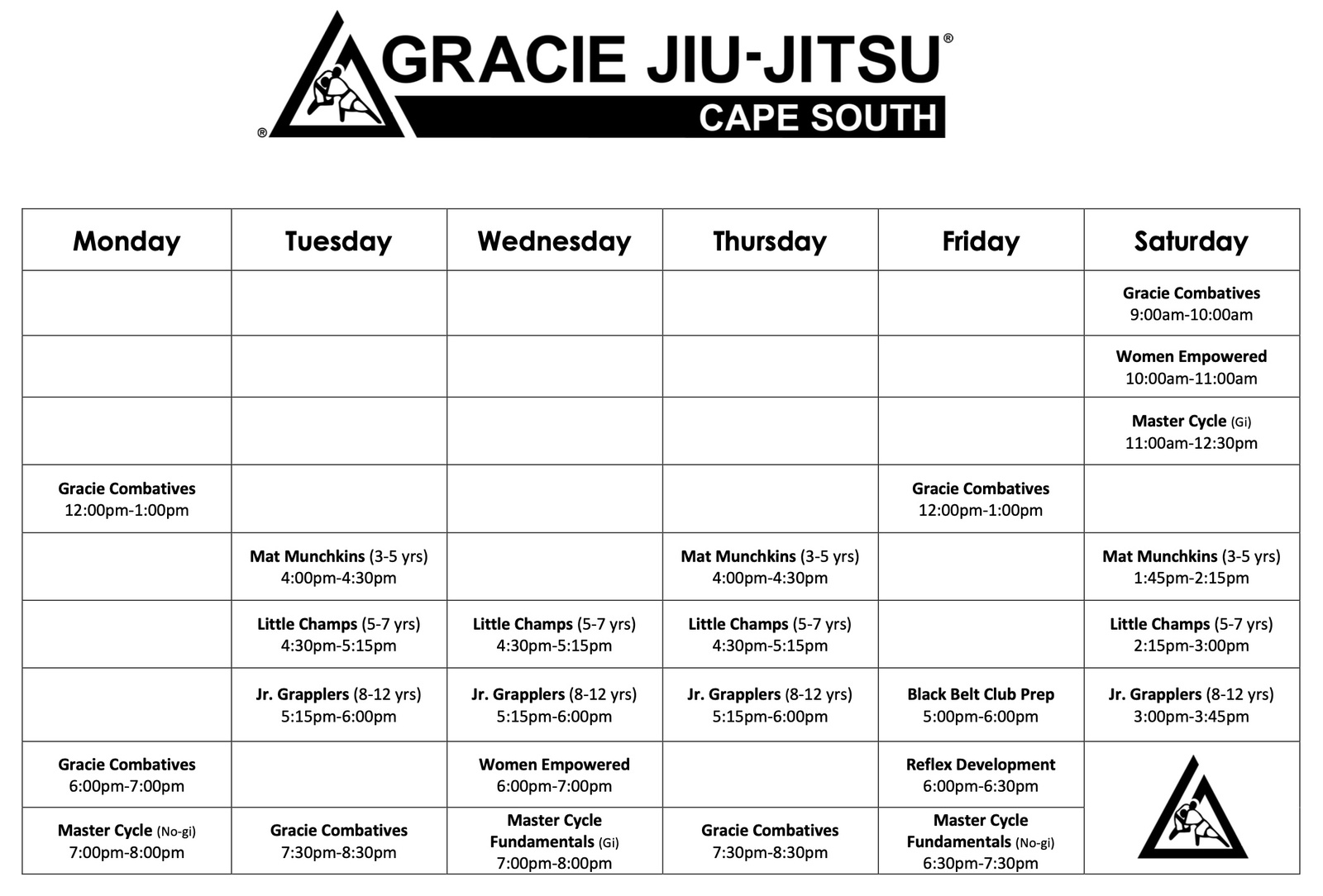Gracie Combatives
12 - 13
12:00 - 13:00
We look forward to seeing you soon!
Please let us know ahead of time if you are not able to make your scheduled time.
You are now on the waitlist. If a spot opens up we will notify you via Email.

